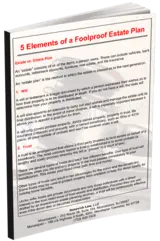Everyone has the right to govern their own affairs, which includes making decisions concerning medical care, financial questions, and the distribution of property. Unfortunately, many people face incapacity due to physical or mental illnesses that limit their ability to make these decisions. Accordingly, people who are potentially vulnerable to predatory parties may undergo a process through which another competent adult may serve as their guardian.
If you believe that a loved one is no longer able to care for their own legal affairs, a Moorestown guardianship lawyer may be able to help with this aforementioned process. Your qualified trusts and estates attorney could work with you to determine whether a guardianship is appropriate and take the necessary steps to file associated motions in court.
When May a Guardianship be Necessary?
The inability to handle their affairs does not necessarily mean that a person is sufficiently incapacitated to qualify for a court-appointed guardian. According to New Jersey Revised Statutes §3B:12-24.1, a court must determine that the person in need of guardianship is incapacitated by law.
NJ Rev. Stat. §3B:1-2 defines an incapacitated individual as, “…[A]n individual who is impaired by reason of mental illness or intellectual disability to the extent that the individual lacks sufficient capacity to govern himself and manage his affairs.” In light of this, a court overseeing a guardianship case must typically conduct an inquiry into the capacity of the subject to govern themselves.
A court cannot even consider an application for appointment as a guardian if the application does not include a recent affidavit from a physician that details the medical necessity for guardianship. A Moorestown guardianship attorney could provide more information concerning the reasons why the court may or may not appoint a guardian.
The Legal Processes for Seeking Guardianship
A guardianship is a legal means by which a person may take legal responsibility for the rights and responsibilities of another. However, as mentioned before, neither party can enact a guardianship on their own. Instead, the appointment of a guardian is something that only a probate court may order.
Any person wishing to receive an appointment as a guardian for another person must complete and submit a form asking to be made that person’s guardian. This form requires detailed information about the applicant, the subject of the request, any close relations to the subject, and medical evidence that supports the request for the appointment.
The guardianship application process and administration are for the benefit of the subject of the order. A guardianship lawyer in Moorestown could help determine whether a guardian’s actions are appropriate and take the necessary steps to fulfill the wishes of the subject.
A Moorestown Guardianship Attorney Could Help Protect Incapacitated Relatives
Severe physical or mental disabilities can have a disastrous effect on a person’s quality of life and finances. Unfortunately, these people can often become targets for opportunists who may try to influence their decisions or even steal their assets.
To prevent this, the law in Moorestown allows a probate court to appoint guardians to safeguard the assets of incapacitated people. A Moorestown guardianship lawyer could provide essential guidance throughout the guardianship application process, helping adults to evaluate whether a loved one requires the aid of a guardian and help advocate for everyone involved. Call today to learn more about your legal options.

 (856) 439-6223
(856) 439-6223
